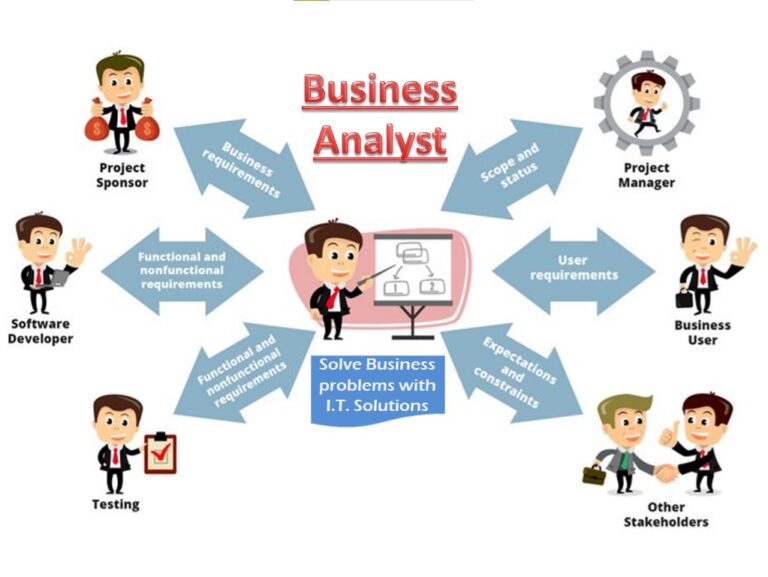Hello friends, let’s discuss today about applications. No, not application for a job but Computer programs, which are also known now as applications!
As we know computers have become a big part of our lives and every business today has become dependent on computer programs (or computer applications). As companies grow and use of computer systems grows, there are new and new applications being used by companies and almost all companies have become critically dependent on these applications. So much that many such applications are now “mission-critical”, meaning they are so critical for the business that they need to keep running perfectly 24 hours, 7 days a week, 365 days a year (24x7x365). This is where Application Management and Application Support teams come in.
Application Management: refers to all the activities that ensure that (a) the given computer programs/applications are running without any problem, (b) taking all preventive actions so that these applications keep running smoothly without any break (called downtime) and (c) updating the application from time to time, to allow the users to use new features and also so that the application continues to work seamlessly with other related computer applications like say Operating System, Database systems, Security software etc. Application Management thus covers application infrastructure (hardware, network connectivity, backup planning etc.), maintenance and application support on 24×7 basis.
Key Application stakeholders are (1) Application Owners, which is the senior management team that is responsible for the application in terms of business productivity, revenue and control (2) Application Developers/Managers, which is the technical team responsible for application development, deployment and maintenance (3) Application Users, those who depend on the application to complete their key activities and finally (4) Application Support team, which is the team of technical or functional experts that helps the users in case of any issues or problems in using the application.
Application Support: As we can see, it is the job of Application Support team to ensure that these applications are always available to users. Application support can be Technical support or Human support (also called Functional support). Technical support relates to the maintenance of the app, software and organization’s other technological systems. Functional support relates to helping the user understand how to use the application and help solve any usage issues. For Tech Support role, the support analyst is usually an IT professional or for Functional Support role, the analyst is someone with strong business & functional knowledge and these Analysts help a business to resolve its application and system issues.
The Application Support teams are often divided in Level-1 to Level-3 (called L1 to L3) team members based on application support skill set. L1 is the simplest and least complex support, going up to L3 which is the most complex support that needs very high level of application or business knowledge. When L1 support team is unable to resolve in issue, it escalates the same to L2 team and if they also cannot resolve, it gets escalated to L3 team.
A key point to note is that most of the times, such support teams work remotely and provide support via emails, phone calls, chats or even video calls and only very complex issues need personal or face-to-face support. This means that apart from required technical or business skills, one also needs strong communication skills to be able to understand and explain the users over a phone call or a chat so that personal meeting is not required. In fact, many such teams often “Work from Home” and may not need to go to office for working! In case of large companies and support teams, they may even be located in far-away foreign countries and still the users can get instant, super-fast application support! A related career opportunity can also be if a candidate knows a foreign language like say German, French, Spanish etc., in which case supporting customers in these languages becomes much easier.
There is a wide range of Applications which need Application Management and Support, for example: Microsoft products like Windows, MS-Office, Email programs like MS-Outlook; Business applications like Adobe Acrobat/related applications or Salesforce or ServiceNow etc.; Enterprise-wide applications like SAP, Oracle, PeopleSoft, Microsoft Dynamics etc.; Database systems like Oracle, Microsoft SQL Server, MySQL etc.
In case of Tech Support for some applications, it may be possible to do official Training courses and get certified. Usually such training courses may run for few weeks or months and have online tests, after which one can get official Certification. There are also websites like coursera.org, simplilearn.com, Salesforce Trailhead which can help with various online courses to get started.
Note that applications now can be accessed anywhere, using any device like Computer, Laptop, Mobile phone, i-Pad etc. Amazon Web Service (AWS), Microsoft Azure and Google Cloud are leading companies offering cloud-hosting services where many companies like to host their applications or data. Likewise, many applications are now available on Software-as-a-Service (SaaS) basis, which means they are available like a Subscription and do not need any installation, hardware, software etc. Such cloud and SaaS-based technologies are making development, deployment, hosting, maintenance and support for applications not just much simpler and faster, but also offer convenient access from anywhere in the world.
With new and new applications, which can be used with different devices, more and more users using mobile phones, continuous improvement in network technologies like 4G & 5G, with cheaper data use costs via Mobile and Broadband fiber connections – it is expected that application maintenance and support jobs will be always in demand in the coming years.
I am giving an example here of one such application called Adobe Experience Manager (AEM).
What is Adobe Experience Manager (AEM): Adobe Experience Manager (AEM) is the leading digital experience management solution for marketers and IT professionals to design, anticipate, and deliver rapidly adaptable experiences across web, mobile, in-store, and any end point in the customer journey. AEM enables organizations to deliver a connected and compelling digital experience across the customer journey. This increases engagement and drives demand across online to physical interactions.
Fluid Experiences: The Adobe Marketing Cloud helps marketers anticipate, manage, orchestrate, and deliver fluid experiences that differentiate the brand throughout the customer journey and across any channel. This means you can support true omnichannel experiences across owned, earned, and paid channels. Content goes beyond the traditional “web” form and is available in a multitude of end points – screens, dynamic adaptive forms, documents, email, social, apps, and more.
I hope this note helps to give basic understanding of Application Management and Support as a career option. Any engineering graduate, B.Sc. (I.T.) graduate or even aspirational Commerce graduate having knack for technology & computer programs can think about building career in Tech. Support. For Functional support, a very good business understanding as well as strong Computer/I.T. skills and strong Communication skills are important.
As my introduction, I am Pranay Dixit, son of Chandrakant & Kundanben Dixit, based in Mumbai/Thane. I have been in the field of Application Management for 20+ years and have managed various applications like M3 (ERP), BaaN (ERP), Robotic Process Automation, CRM, AEM across Manufacturing and Banking industries. Do reach out to me for further guidance on pranaydixit@gmail.com or on +91 97692 34085, happy to help.




